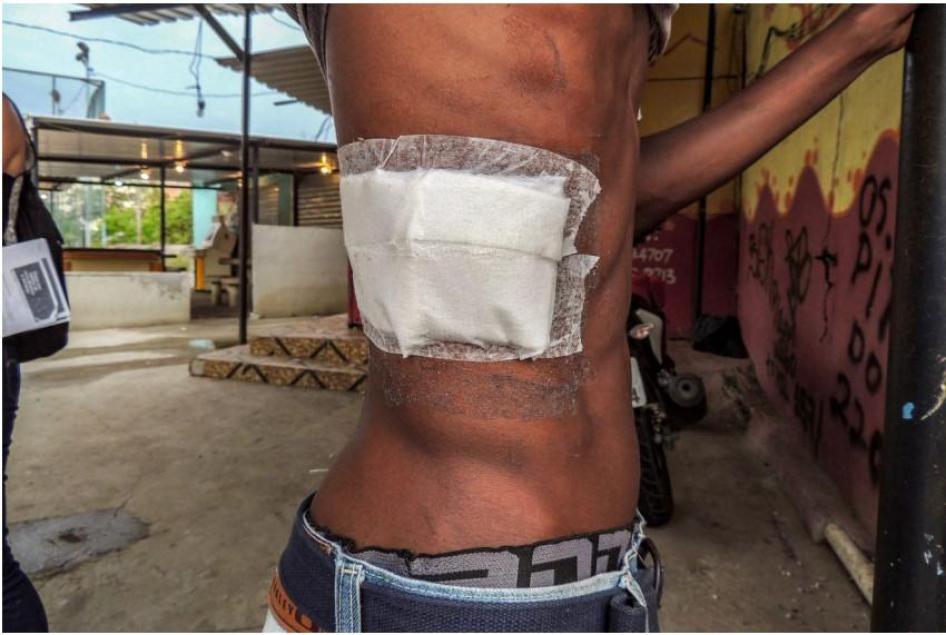Brazil should conduct an independent and thorough investigation into allegations that one or more police snipers killed at least two people in a poor neighborhood of Rio de Janeiro in late January, 2019, Human Rights Watch said today.
Witnesses said that the shots came from a tower within the main complex of the Rio de Janeiro civil police, the police force that conducts criminal investigations within the state. Residents said the people killed did not pose a threat to anyone when they were shot.
“An independent investigation of these killings is absolutely necessary,” said Daniel Wilkinson, Americas director at Human Rights Watch. “Given the possibility that the killer is a civil police officer shooting from a civil police installation, the investigation should not be led by the civil police but by state prosecutors and federal police.”
The Group of Specialized Action in Public Security (GAESP), a prosecutorial unit tasked with investigating police abuses at the state´s prosecutor´s office, formally opened an investigation on February 14. Federal police should provide GAESP with forensic analysis and other assistance so that the unit does not need to rely on the state civil police, Human Rights Watch said.
The Rio de Janeiro public defenders´ office has also called for an investigation by a body independent of the civil police.
In a 2017 ruling in a case involving killings by police in Rio de Janeiro, the Inter-American Court of Human Rights ordered Brazil to ensure that investigations of killings allegedly by police are completed by a “body that is independent and different from the police force involved in the incident, such as a judicial authority or the public prosecutor´s office, assisted by police personnel, forensic experts and administrative staff outside of the security institution that the possible defendant or defendants belong to.”
Carlos Eduardo Santos Lontra, 27, was shot dead on January 25 in a small square at the end of São Daniel Street in the Manguinhos favela, said Rio´s public defender´s office. Four days later, Rômulo Oliveira da Silva, 37, was also fatally shot, as he rode his motorcycle past a vegetable stall in the square.
A third man, a 22-year-old construction worker, was shot in the square the same day as Rômulo and survived. He told Human Rights Watch that the shot came as he stood by a lamppost on the other side of the street from the vegetable stall. “The bullet went all the way through my body,” he said.
The bullet entered his back, near the right ribs. He was taken to the hospital and is recovering from the wound at home.
The man believes that the shot came from a tower within Cidade da Polícia (Police city), the main civil police complex in Rio de Janeiro. The tower is less than 300 meters from where the man was injured. Several other residents, including a woman who was sitting in the square when the man was shot, told Human Rights Watch that they believe the shot came from the tower.
A hot dog stall on the square in the line of sight of the tower had what appeared to be two bullet holes in it on February 4, when Human Rights Watch visited the site. The woman who had been sitting in the square at the time of the shooting said she believed the holes were made by bullets fired from the tower. Human Rights Watch is withholding her identity and that of other witnesses for their security.
Residents told Human Rights Watch that at least four other people were killed during 2018 in the same square as a result of gunshots that the residents believe came from the civil police tower. Human Rights Watch could not confirm the details of any of these incidents. However, residents said they complained about shooting from the tower to representatives of the civil and military police, during 2018 meetings of the Community Security Council.
The minutes of a meeting of the Council in September obtained by a reporter for Extra, Rafael Soares, confirm that a researcher from a nearby research organization raised the issue. Participants told Human Rights Watch that the police responded that it would be impossible to shoot from the tower.
On February 11, a team from GAESP—and civil police forensic experts—visited the tower. The state prosecutor´s office told Human Rights Watch that those experts concluded that it would indeed be possible for a sniper to shoot people in the square while lying on the roof of the tower.
Police killed 1,530 people in 2018 in Rio de Janeiro, according to the Public Security Institute (ISP, in the Portuguese acronym), the highest annual total since the state started collecting that data in 1998. Those were all cases in which police reported that they had killed suspects while on duty. Human Rights Watch research has shown that many police killings are unlawful extrajudicial killings.
Civil police have a poor track record of investigating police killings. Human Rights Watch research shows investigators routinely fail to meet the most basic requirements of a homicide inquiry, such as examining the crime scene and properly questioning police and witnesses.





